ARTICLE AD BOX

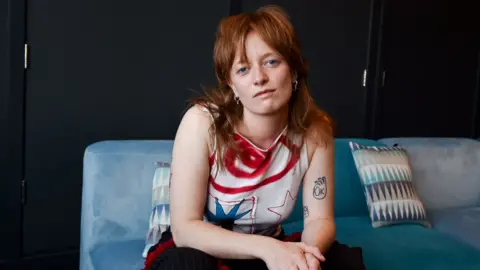 BBC
BBC
Orla Gartland's new album, Everybody Needs A Hero, has received a clutch of four and five-star reviews
When Taylor Swift is making $2bn in ticket sales, and Coldplay can sell out 10 nights at Wembley Stadium, it’s easy to conjure an image of touring musicians swimming in sweet piles of cash, like guitar-wielding Scrooge McDucks.
But for many artists, touring is becoming less and less viable. The cost of putting a show on the road - from van hire and petrol, to crew fees and accommodation - has skyrocketed since 2019.
Little Simz and Rachel Chinouriri are among the artists who’ve cancelled US tours this year because the finances didn’t add up.
In the middle of our interview about her new album, Everybody Needs A Hero, Dublin indie artist Orla Gartland explains how dire the situation has become.
In exactly one month, she’s setting off for her first ever North American tour, playing 13 dates in cities like New York, Los Angeles, Seattle, Detroit and Philadelphia. Every night is sold out. Several venues have been upgraded due to high demand.
But she says, “the amount of money I’m going to lose on that tour is really eye-watering”.
How much, exactly?
“About 40 grand,” she winces.
“I even had to pay to expedite the band’s visas the other day… It’s pretty scary but it’s fine. Everything will go ahead.”
Gartland is determined to make it work, because a US tour has been at the top of her bucket-list since she was a 13-year-old posting music to YouTube under the name “MusicMaaad”.
"I've never gigged there properly, so putting this tour on sale was a real fingers-crossed-behind-the-back moment," she says. "It was so cool when it sold out."
The singer isn't a household name yet but, to those in the know, she's been one of indie's most promising talents from the moment early EPs like Lonely People and Roots showcased her knack for sharp lyrics and sophisticated songwriting.
She cultivated her audience (and a degree of financial independence) by launching a “Secret Demo Club” in 2016 - with about 1,000 fans paying up to £13 a month to receive demo recordings, livestreams and “deep dive” songwriting videos direct from the singer herself.
And she picked up a new wave of fans in 2022 when her song Why Am I Like This was used in a pivotal scene of Netflix's coming-of-age drama Heartstopper.
In the week after the show premiered, it was streamed 1.4 million times in America alone.

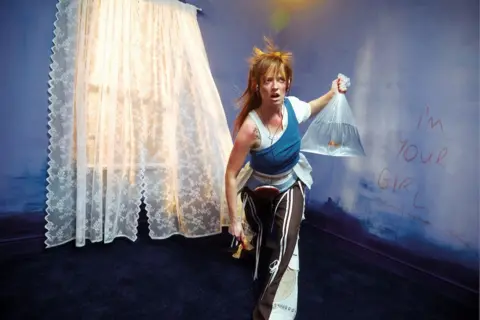 Nicole Ngai
Nicole Ngai
"Stream my new album or the goldfish gets it."
US fans have been begging Gartland to tour over there for years. With her second album about to hit the shelves, 2024 felt like the right time.
“America is such a big place, I’m just fascinated by it,” she says.
“The fans there seem to love music in a different way. I’ve had messages from people saying they’re going to drive 12 hours from North Carolina to see me.
"We wouldn’t do that here. People would just be like, ‘Why aren’t you playing in west London?’”
'Identity in shreds'
Gartland’s new album, Everybody Needs A Hero, is built for playing live. It’s packed with jagged guitar lines and fiery melodies that nip hungrily at your earlobes.
First single Kiss Ur Face Forever is a grunge-pop anthem to physical infatuation, while the follow-up Little Chaos is a frantic reflection of an unsettled mind.
Those bombastic songs are paired with more vulnerable, singer-songwriter tracks like The Hit - a homespun ballad where Gartland describes a friendship so close that “if you get the cut, I feel the sting”.
The 12 songs act as an autopsy of a single, five-year relationship, examining all the different feelings you can have about the same person, from the heady rush of first love to the uneasy realisation that something's gone wrong.
Incisive and wise, it recognises that all those emotions can co-exist - something she states explicitly in the opening song, Both Things Are True.
“When I listen to really, really commercial pop, I just find it a bit dumb,” Gartland explains.
“It’s so simplified - you fall in love or you break up. That's just not my experience of relationships. It’s way more dense, and I thought it’d be interesting to commit to that as a thread running through the album.”
The complexity comes to the fore on Who Am I?, where Gartland sings about the tendency to put her partner’s interests before her own.
The song starts with an idle thought - “I cut my hair the way you say you like it / Have I got no free will?” - that spirals into an existential crisis. By the end of the song, Gartland is singing, “I’m a silhouette of the person I was".
“I see that in myself and in a lot of my female friends,” she says. “You’re sort of manic, running around, giving your energy to other people, then being left with this feeling of like, ‘God, I don't even know what I want’.
“So that song was about trying to take your foot off the gas, and thinking, ‘If I take you out of the equation, does that leave my identity in shreds?’”

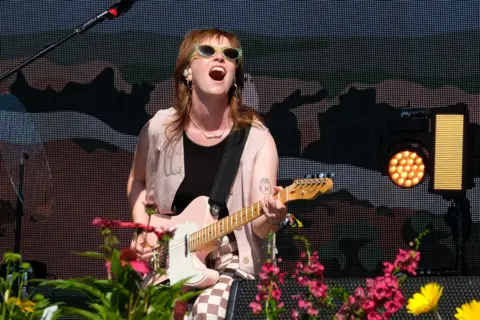 Getty Images
Getty Images
The singer started out playing violin, fiddle, and traditional Irish music at the age of five
Released last Friday, critics have already given Everybody Needs a Hero an enthusiastic thumbs up. Far Out Magazine called it an “incredible evolution”, Dork magazine praised its “delightfully rebellious” sound, and Golden Plectrum named Gartland a “blue-ribbon songwriter in the alt-pop universe”.
The musician, conversely, has no idea what she thinks of the record.
“I have no perspective,” she laughs. “In my gut, I feel proud of it. I think it juts out at the edges a bit more than the music I made before - but I would love the ability to just wipe my memory and just hear it for the first time.”
Fair enough. She’s been living with the album for two years at this point, working in fits and starts around her commitments with the indie-pop supergroup Fizz.
The band, which she formed with her friends Dodie, Greta Isaac and Martin Luke Brown, delivered a ridiculously enjoyable album of harmony-driven psychedelic pop last year, and quickly found themselves becoming festival favourites.
That record was written and recorded in a little under a week, as the band shook off the pressures of their solo careers. For Gartland, who had spent years obsessing over tiny details in her home studio, the anything-goes approach was a revelation.
“It was such a big thing,” she says. “I realised how easy it is to suck the magic out of the song by tinkering too much.”

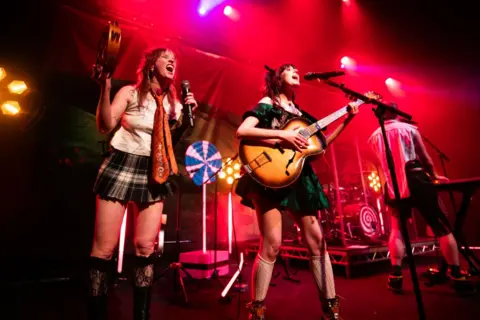 Getty Images
Getty Images
Fizz began recording just for the fun of it, and ended up on Radio 1's Playlist and headlining London's Shepherd's Bush Empire
She still writes on her own - claiming that collaborators would find her methods “insufferable” - but approached recording sessions with a newfound looseness.
“Making sure everyone's eating well, having a nice walk in the afternoon - all of that made it into the music,” she says. “You can hear it in someone’s vocal when they’re having a good time.”
Although some of the songs were written in her London apartment, others were constructed from improvised jam sessions held in Devon’s Middle Farm studios.
“Little Chaos was like that,” she says. “We picked a key, recorded for 40 minutes, and then I took all the separate parts home and cut them up.
“I made a chorus section, made a verse section and sang a vocal over the top.
“It was so exciting to have well-recorded drums to write over. It made me want to match that energy. I’d stand a bit taller when I was singing.”
The result is a record that bursts out of the speakers, brimming with confidence, assured in its worldview.
Gartland can’t wait to play the new music live. She might be losing money going to the US, but she’s expecting a “fun, gnarly” couple of weeks on the tour bus.
Her only regret is leaving her kitchen behind.
“Hotel food and endless deliveries just make my soul feel depleted,” she says.
“I’ve definitely watched YouTube videos of people making elaborate food with the apparatus given to you in a hotel room.”
Such as?
“Oh, like, cooking a toasted sandwich in a trouser press, or frying an egg on an iron covered in tinfoil.
“But I don’t know… I don’t think I can’t bring myself to try it.”

 6 months ago
42
6 months ago
42
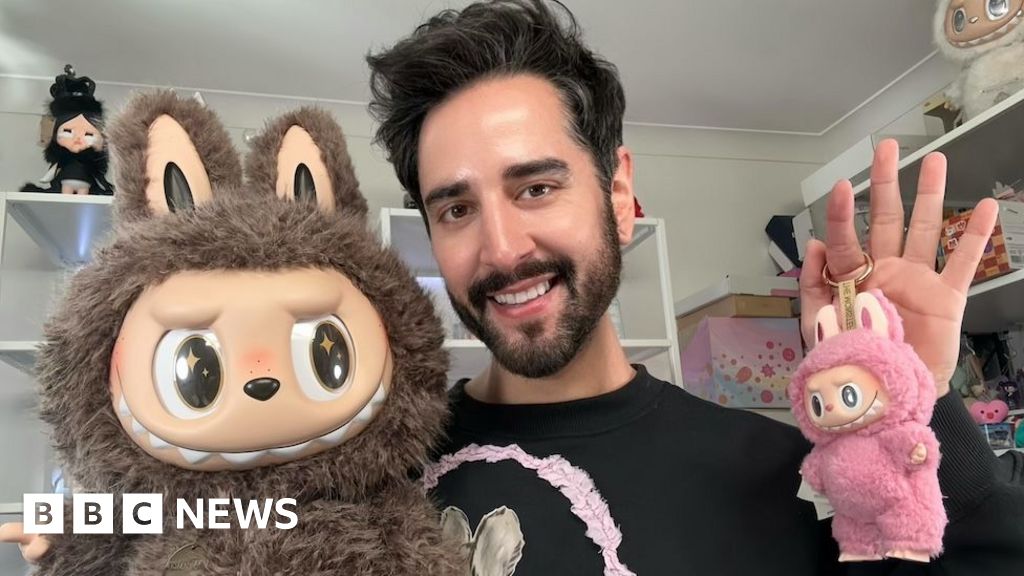
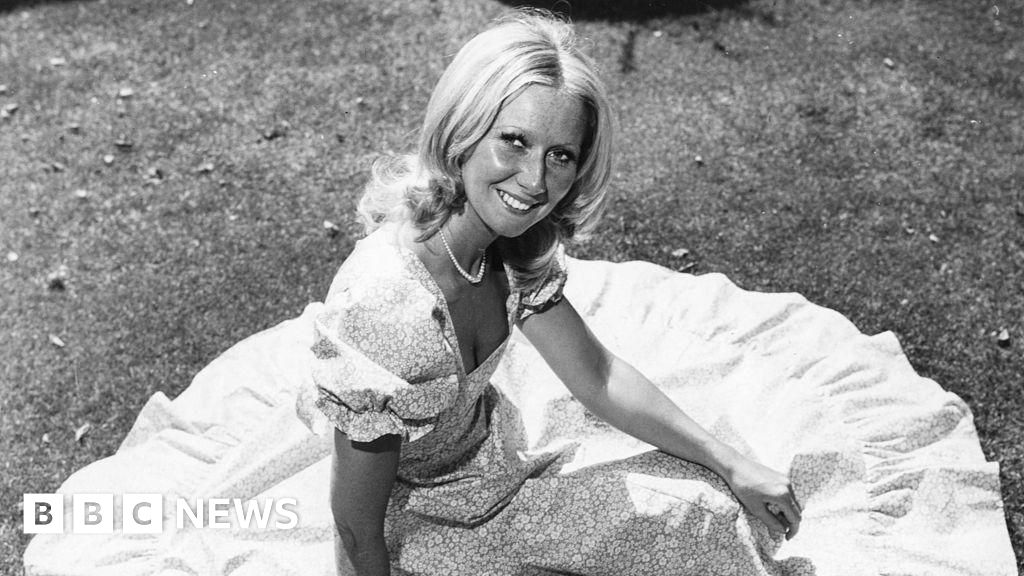
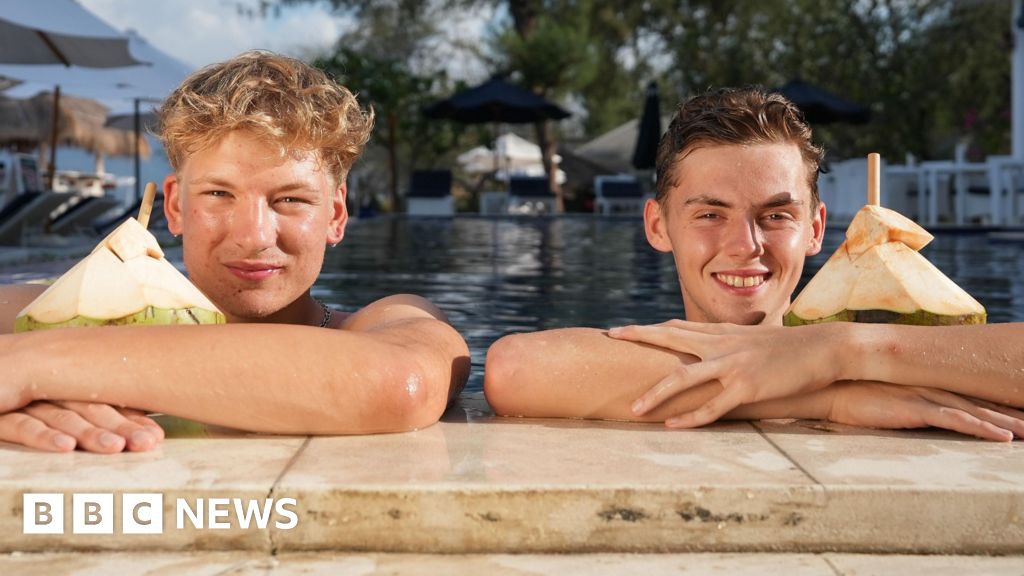





 English (US) ·
English (US) ·